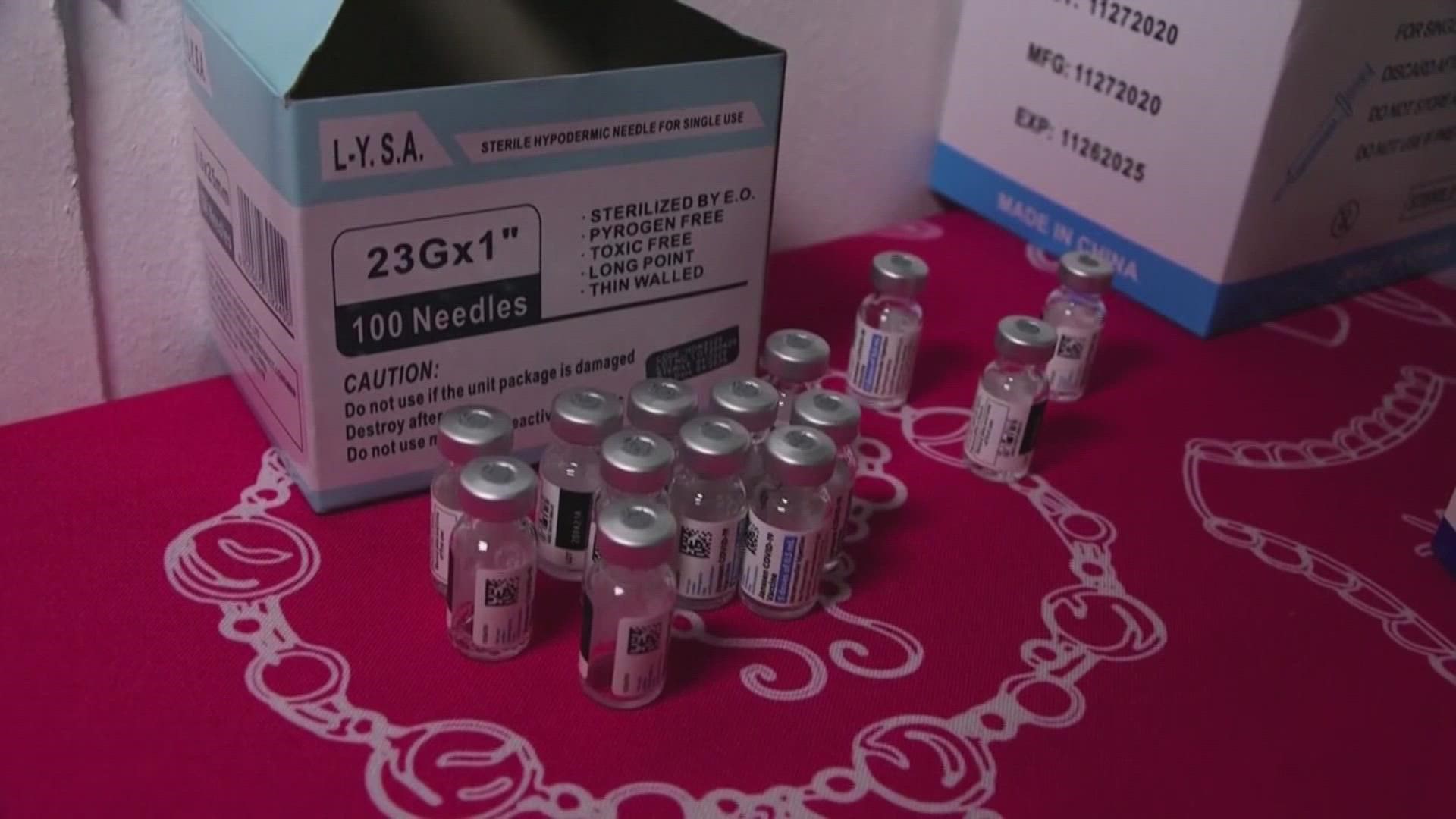DALLAS — The flurry of holiday activity gave us a much needed break from the realities of living in a pandemic. But as expected in these times, breaking medical news hit Friday of a new variant.
"It was a really disappointing day, not gonna lie. Hearing this news took the wind out of a lot of our sails," said Dr. Mark Casanova of the Texas Medical Association COVID-19 Taskforce.
It has been named by researchers as omicron, another mutation of the virus that has taken a Greek alphabet name. Researchers around the world are concerned with this variant because it is highly transmissible.
"This variant has a large number of mutations and some of these mutations have worrying characteristics," said Maria Van Kerkhove of the World Health Organization.
Regions in South Africa are beginning to see its effect. Health officials in the region report major spikes of this variant. It prompted health officials to hold a virtual meeting Friday to educate the public about the virus and possible mitigation strategies.
"This variant did surprise us. It has a big jump on evolution," said Dr. Tulio de Oliveira, a South African scientist
The United States has followed suit with the European Union in restricting travel from visitors from South African regions and seven other countries beginning Monday. So far, there is no current indication that the virus has made its way to the U.S.
The other reality is we just don't know enough about omicron and how it behaves, and it's too early to find out. Before this, the delta variant was similarly considered to be highly transmissible.
"We know that this variant appears to be more highly transmissible but what we don't know as of yet: Is it more infectious? Does it cause more harm in the individual who is infected?" asked Casanova. "You're right, 'here we go again' because we haven't been able to get ahead of this thing and we need to get about five steps ahead of it," he said.
The doctors and researchers across the world have repeated the same mitigation strategies that have been employed over the last two years: hand washing, masking, social distancing, but more importantly, getting the vaccine.

